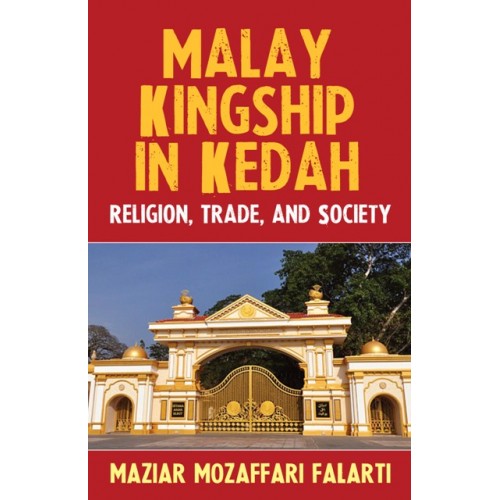Malay Kingship in Kedah: Religion, Trade, and Society
Authors: Maziar Mozaffari Falarti
Publisher: SIRD
ISBN: 9789670630090
Weight:
Year: 2013
Page: 225pp
Price : RM40
“Maziar Mozaffari Falarti’s book is different: a radically novel presentation of the history of Kedah, one of the oldest powerhouses on the Malay Peninsula, inspired by a wide variety of texts that have been unknown and inaccessible to other historians of Malaysia. The author manages to make sense of Kedah in a global context, and in the process, leads our understanding of the dynamics of might and right in the Malay world and beyond along new vistas. Impressive and exciting work.”
— Hendrik M. J. Maier, Luce Professor of Southeast Asian Studies, University of California, Riverside
Malay Kingship in Kedah: Religion, Trade, and Society probes and examines traditional sources of royal power and control, as well as indigenous socio-political systems in the Malay world. It focuses on the north-western Malaysian Sultanate of Kedah, which is acknowledged as the oldest unbroken independent kingship line in the Malay and Islamic world with one thousand years of history.
Little scholarly attention has been paid to its premodern history, society, religion, system of government, and unique geographic situation, potentially controlling both land and sea lines of communication into the remainder of Southeast Asia. This book will thus provide the first comprehensive treatment on Kedah’s premodern and nineteenth-century historiography and can provide a foundation for comparative studies of the various Malay states, which is presently lacking.
Maziar Mozaffari Falarti also sheds much-needed light on a range of important topics in Malay history: Kedah and the northern Melaka Straits history, colonial expansion and rivalry, Southeast Asian history and politics, inter-regional migration and the influence of the sea peoples or orang laut, traditional Malay sociopolitical and economic life, Islamic influences, and the course of Thai-Malay relations.
This book attempts to offer a new understanding, not only of Kedah, but of the political and cultural development of the entire Malay world and of its relationships with the broader forces in both its continental and maritime settings. It argues that Kedah does not seem to follow, and in fact, often seems to contradict what has been commonly been accepted as the “typical model” of the traditional Malay state.
Thus it concludes that the ruling dynasty has historically exploited a wide range of unique environmental conditions, local traditions, global spiritual trends, and economic forces to preserve and strengthen its political position.








